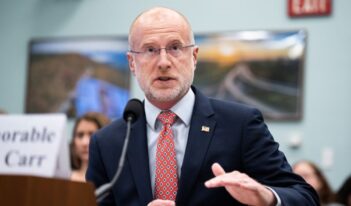
Repeal follows Commission’s announced plan to remove rules that are out of date.
As part of its recently announced plan to eliminate 83 “outdated” rules, the Federal Communications Commission (FCC) issued a final rule officially repealing the Fairness Doctrine, which the FCC has not enforced since the late 1980s. The repeal follows President Obama’s Executive Order that directed independent regulatory agencies like the FCC to revise or remove outdated or burdensome regulations.
The Fairness Doctrine instructed radio and television broadcasters to cover important public issues with a “fair cross-section of opinion” in their broadcasts. It also required broadcasters to notify and offer individuals involved in public matters who were insulted on air the opportunity to respond through the broadcaster’s programming.
In its 1969 decision in Red Lion Broadcasting v. FCC, the Supreme Court upheld the Fairness Doctrine over a First Amendment challenge, finding that the public had a right to “to receive suitable access to social, political, esthetic, moral, and other ideas and experiences” over broadcasts. Under this reasoning, the FCC was authorized to regulate the content of broadcasts to promote the public interest.
In a 1985 internal review, the FCC concluded that the Fairness Doctrine was no longer necessary for the public interest. The review found that the media marketplace provided adequate competition of different viewpoints. The Commission also determined that the “fair cross-section” requirements discouraged coverage of controversial but important stories because broadcasters might avoid topics that could trigger Fairness Doctrine obligations.
While FCC Commissioners voted to repeal the Fairness Doctrine in 1987 based on their conclusions from two years earlier, the rules remained on the books, prompting commentators from the political left and right to express their opinions on the future of the Fairness Doctrine. However, with the repeal now official, these concerns have likely become moot.



